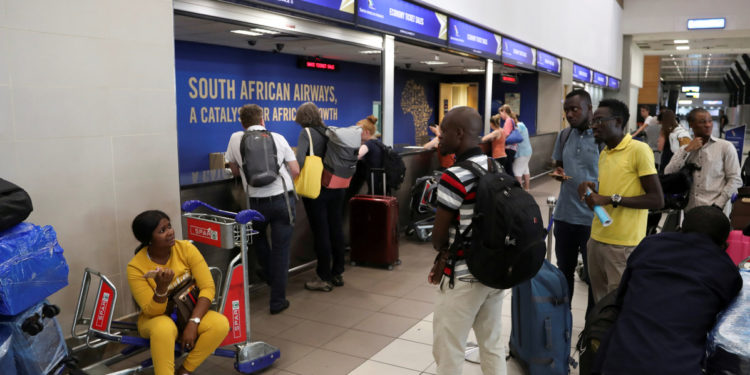As African countries resume regional and international flights, the International Air Transport Association is urging governments across the continent to unblock bottlenecks so that urgently-needed financial relief pledged for air transport and tourism reaches the distressed businesses it’s intended to help.
“Without a lifeline of funding to keep the sector alive, and a roadmap to restart aviation safely as soon as possible, the economic devastation of coronavirus could take Africa’s development back a decade or more,” Muhammad Albakri, IATA’s regional vice president for Africa and the Middle East said in a press release published on the association’s website on Wednesday.
Albakri said aviation supports livelihoods, trade, education, good health and wellbeing and quality education, reduces hunger and poverty and ensures access to essential medical supplies and humanitarian aid, as proven throughout the coronavirus crisis.
“Without an air transport industry, Africans are at risk of not being able to realize their dreams and aspirations,” he said.
According to IATA, due to coronavirus impacts, as well as associated restrictions, African airlines are forecast to lose $2 billion in 2020 and that without urgent financial relief, the industry is at risk of collapse, putting about 3.3 million jobs and $33 billion in African Gross Domestic Product in jeopardy.
Already governments in Rwanda, Senegal, Côte D’Ivoire and Burkina Faso have pledged a total of $311 million in direct financial support to air transport, the association said.
A further $30 billion has been promised by some governments, international finance bodies and other institutions, including the African Development Bank, African Export Import Bank, African Union and the International Monetary Fund for air transport and tourism.
Albakri said over $30 billion in financial support has been pledged to aviation and tourism in Africa.
However, Albakri said despite the fact that some of the money has been allocated by governments, far too little of it has reached its intended recipients.
“Governments and lenders need to urgently unchoke the bottlenecks so that the money can flow quickly, otherwise it will be too late to prevent closures and job losses,” he said.
“There will be no point re-opening the borders and skies if there is no industry left to speak of that is capable of supporting trade and tourism, which are the key components of any thriving economy.”
IATA is advocating for harmonized adoption of the ICAO take-off guidance which outlines recommended biosafety measures, as countries resume regional and international flights.
The guidance includes health screening, wearing face masks or coverings, adequate physical distancing, enhanced sanitation and disinfection, contact tracing and the use of passenger health declaration forms. This is in addition to testing, when rapid and reliable testing is available.
As part of reopening their economies amid the coronavirus pandemic, Ethiopia, Benin, Kenya, Ghana, Tanzania, Senegal and Rwanda have allowed or announced the imminent resumption of scheduled international passenger flights.
Kenya is set to resume international flights on Aug 1, after resuming domestic flights on July 15.
Already Emirates, Qatar Airways, British Airways, Air France and KLM have confirmed plans to resume flights in and out of Kenya’s capital, Nairobi.









